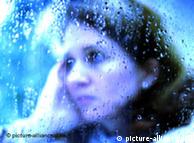Druggings put spotlight on sleeping pill sales
BY TAKUYA SUZUKI
THE ASAHI SHIMBUN
2009/11/26
A recent spate of suspicious deaths linked to sleeping pills has underscored the alarming ease with which the prescription drugs are readily available through illegal channels.
Though the sedative is regulated by law, it can be easily bought at any one of countless sites across the online "black market."
Doctors are also inclined to prescribe sleeping pills without questioning whether patients really need them.
Several recent cases have demonstrated that the widely available drug can just as easily be put to sinister use.
In August, a 41-year-old real estate broker was arrested in Sakai after he allegedly used sleeping pills in juice to drug and sexually assault a woman in her 20s.
Last December, a 68-year-old woman in Yamagata Prefecture allegedly sedated her husband, 65, and 9-year-old granddaughter by putting sleeping pills in their miso soup. She then allegedly attempted to strangle and stab both of them. Her granddaughter died in the attack.
But it was five recent deaths in two high-profile cases that focused intense public scrutiny on the issue.
In October, it was reported that traces of sleeping pills were found in the bodies of two male acquaintances of a 34-year-old Tokyo woman, who has been indicted for fraud in separate cases.
The first, an 80-year-old man, was killed in a fire in Chiba Prefecture in May. The second, a 41-year-old, was found dead in a car in Saitama Prefecture in August.
The substances detected in their bodies matched the sleeping pills the woman had been prescribed at a Tokyo clinic. According to her doctor, the woman asked for three types of sleeping pills, including triazolam.
In November, police sources said traces of sleeping pills found in the bodies of three male acquaintances of a 35-year-old Tottori Prefecture woman, who was arrested on suspicion of fraud, were likely identical.
Sites that illegally sell sleeping pills and other psychotropic drugs abound on the Internet. Triazolam, for instance, is sold for 2,000 yen to 3,000 yen per sheet of 10 pills--much more than when bought at a pharmacy with a prescription.
Though police around the country have been cracking down on illegal trading, it has been a cat-and-mouse game.
In 2007, 92 billion yen worth of hypnotic sedatives and anti-anxiety drugs were shipped to the domestic market by Japanese pharmaceutical companies, a 1.4-fold increase from 10 years before.
Pharmacies are cited as a major source of drugs traded on the Internet. According to the health ministry, criminals frequently steal psychotropic drugs from pharmacies or use fake or photocopied prescriptions to obtain them.
In Obu, Aichi Prefecture, a thief stole 100 triazolam pills from a drug store in August.
In May 2008, a former dentist was given a prison term for illegally obtaining Ritalin, which is methylphenidate hydrochloride, at a drug store in Kawaguchi, Saitama Prefecture.
According to the Japan Pharmaceutical Association, Tokyo and other prefectures have introduced a system by which pharmacies, upon discovering fake prescriptions, notify police or public health centers in an effort to warn other pharmacies.
But sleeping pills are becoming easier to get.
Since April 2008, doctors have been able to prescribe patients up to 30 days' worth of triazolam and 14 other kinds of sleeping pills per visit, up from 14 days.
A health ministry official said the government cannot enforce strict regulations in consideration for patients who genuinely need medicine.(IHT/Asahi: November 26,2009)
